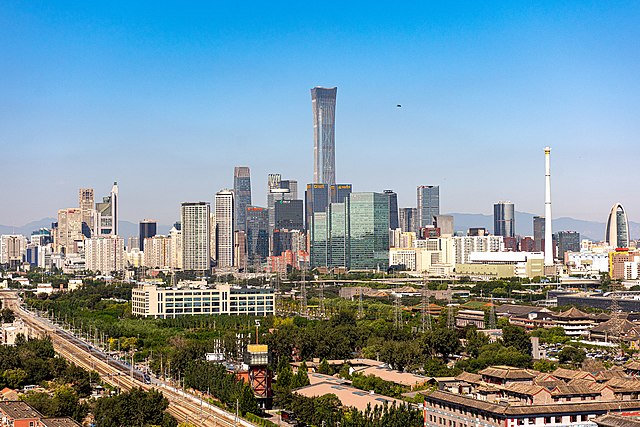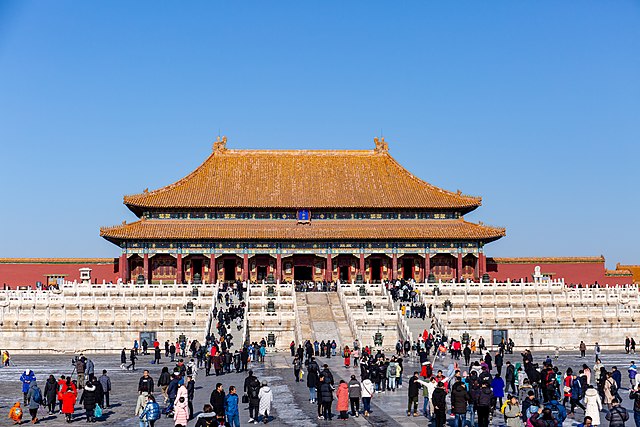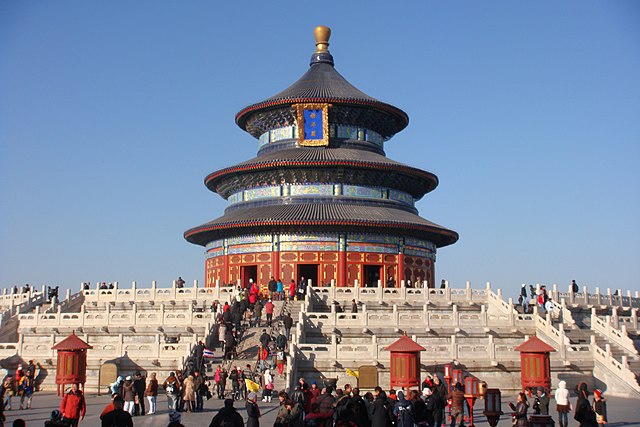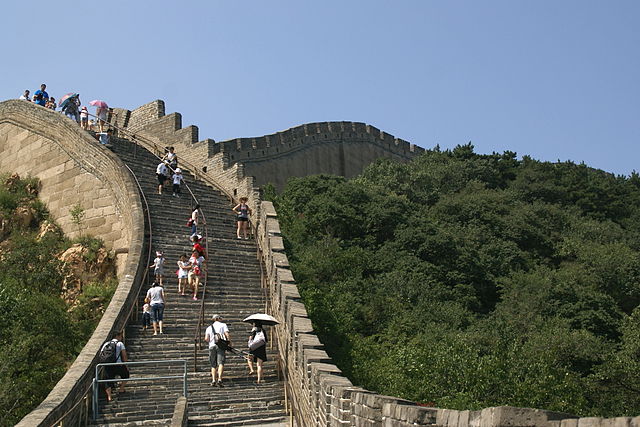Beijing, alternatively romanized as Peking, is the capital of China. With more than 22 million residents, Beijing is the world's most populous national capital city as well as China's second largest city after Shanghai. It is located in Northern China, and is governed as a municipality under the direct administration of the State Council with 16 urban, suburban, and rural districts. Beijing is mostly surrounded by Hebei Province with the exception of neighboring Tianjin to the southeast; together, the three divisions form the Jingjinji megalopolis and the national capital region of China.
Image: Skyline of Beijing CBD from the southeast (20210907094201)
Image: 20200110 Hall of Supreme Harmony courtyard 1
Image: 11 Temple of Heaven
Image: 2014.08.19.110005 Great Wall Badaling
A capital city or just capital is the municipality holding primary status in a country, state, province, department, or other subnational division, usually as its seat of the government. A capital is typically a city that physically encompasses the government's offices and meeting places; the status as capital is often designated by its law or constitution. In some jurisdictions, including several countries, different branches of government are in different settlements, sometimes meaning multiple official capitals. In some cases, a distinction is made between the official (constitutional) capital and the seat of government, which is in another place.
Tokyo, the capital of Japan, and the most populous metropolitan area in the world
Rome, as the capital of the Roman Empire, acquired the nickname of Caput Mundi ("Capital of the world").
Beijing, as the last of the Four Great Ancient Capitals of China, has served as the country's political centre for most of the past eight centuries.
Tehran, the capital and largest city of Iran, and the capital of the Persian Empires in the last two centuries.








